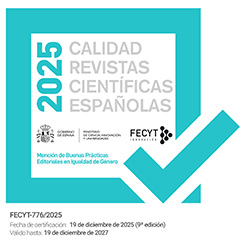Original Feminsims Or Mwenkanonkano In Uganda: Indigenous Voices In Jennifer Nansubuga Makumbi’s The First Woman
DOI:
https://doi.org/10.17561/grove.v30.8020Keywords:
feminism(s), indigenous, storytelling, women, UgandaAbstract
The purpose of this paper is to analyze the novel The First Woman by Jennifer Nansubuga Makumbi in the context of indigenous feminism(s). In the narrative, the protagonist discovers “the original state” of women according to the story she hears from the town witch, Nsuuta: before patriarchy, women were free like bodies of water, shapeless, inconstant, untamed. This original state has been suppressed by centuries of male dominance, but mwenkanonkano (the name the author gives to local feminism) is present in the life of many women who defy discrimination every day with their mere existence and the way they conduct their life. Nsuuta, by orally rendering the myths surrounding womanhood and passing them on to Kirabo, is writing (hi)story, legitimating it in their Ugandan context. Therefore, I argue that Makumbi conveys the need of an intersectional feminism which takes into consideration the life experiences of those women who are (and were) speaking up from their (un)comfortable homes. The author proves how significant these overlooked testimonies are since they are powerful examples of female survival in a society dominated by two intertwined forces: phallocracy and colonialism.
Downloads
References
Arndt, Susan. “African Gender Trouble and African Womanism: An Interview with Chikwenye Ogunyemi and Wanjira Muthoni.” Signs: Journal of Women in Culture and Society, vol. 25, no. 3, 2000, pp. 709–726, https://doi.org/10.1086/495479
Arndt, Susan. “Perspectives on African Feminism: Defining and Classifying African-Feminist Literatures.” Agenda, vol. 17, no. 54, 2002, pp. 31–44, https://doi.org/10.1080/10130950.2002.9676176
Chilisa, Bagele, and Gabo Ntseane. “Resisting Dominant Discourses: Implications of Indigenous, African Feminist Theory and Methods for Gender and Education Research.” Gender and Education, vol. 22, 2010, pp. 617–632, https://doi.org/10.1080/09540253.2010.519578
Ellis, Stephen. “Writing Histories of Contemporary Africa.” The Journal of African History, vol. 43, no. 1, 2002, pp. 1–26, https://doi.org/10.1017/s0021853701008106
Kiguli, Susan Nalugwa. “Voices of Ugandan Women Writers: Positioning Femrite Since 2006.” In Representing Poverty and Precarity in a Postcolonial World. Brill, 2022, pp. 137–155, https://doi.org/10.1163/9789004466395_010
Kizito, A. “The Post-Independence Conflicts in Uganda: A Manifestation of the Classical Imperialistic Divide and Rule Policy of the British Colonial Administration in Uganda.” Developing Country Studies, vol. 5, no. 20, 2015, pp. 56–75, https://iiste.org/Journals/index.php/DCS/article/view/26902
Kiyimba, Abasi. “Male Identity and Female Space in the Fiction of Ugandan Women Writers.” Journal of International Women's Studies, vol. 9, no. 3, 2008, pp. 193-222, https://vc.bridgew.edu/jiws/vol9/iss3/11
Kyomuhendo, Goretti. “Goretti Kyomuhendo in Conversation with Jennifer Nansubuga Makumbi.” Wasafiri, vol. 33, no. 3, 2018, pp. 39–42, https://doi.org/10.1080/02690055.2018.1468403
Lihamba, Amandina, et al., editors. Women Writing Africa: The Eastern Region. FEMINIST PR, 2007.
Makumbi, Jennifer Nansubuga. Kintu. Kwani?, 2014.
Makumbi, Jennifer Nansubuga. “So Many Ways of Knowing: An Interview with Jennifer Nansubuga Makumbi, Author of Kintu. Interview by Alexia Underwood.” Los Angeles Review of Books, Aug. 2017, https://lareviewofbooks.org/article/so-many-ways-of-knowing-an-interview-with-jennifer-nansubuga-makumbi-author-of-kintu/
Makumbi, Jennifer Nansubuga. The First Woman. Oneworld Publications, 2020.
Makumbi, Jennifer Nansubuga. “Jennifer Nansubuga Makumbi: ‘Life Is about Making Myth’. Interview by Anita Sethi.” The Guardian, Sept. 2020, https://www.theguardian.com/books/2020/oct/03/jennifer-nansubuga-makumbi-life-is-about-making-myth
Makumbi, Jennifer Nansubuga. “Powell’s Interview: Jennifer Nansubuga Makumbi, Author of ‘A Girl Is a Body of Water’. Interview by Jill Owens.” Powell’s city of books, Sept. 2020, https://www.powells.com/post/interviews/powells-interview-jennifer-nansubuga-makumbi-author-of-a-girl-is-a-body-of-water
Mwaka, Victoria Miriam. “Women’s Studies in Uganda.” Women’s Studies Quarterly, vol. 24, no. 1/2, 1996, pp. 449–64, http://www.jstor.org/stable/40004545
Nnaemeka, Obioma. “From Orality to Writing: African Women Writers and the (Re)Inscription of Womanhood.” Research in African Literatures, vol. 25, no. 4, 1994, pp. 137–157, https://doi.org/10.2307/3819872
Nnaemeka, Obioma. “Nego-Feminism: Theorizing, Practicing, and Pruning Africa’s Way.” Signs: Journal of Women in Culture and Society, vol. 29, no. 2, 2004, pp. 357–385, https://doi.org/10.1086/378553
Nfah-Abbenyi, Juliana Makuchi. “Introduction: Orality and Indigenous Knowledge in the Age of Globalization.” The Global South, vol. 5, no. 2, 2011, pp. 1–6, https://doi.org/10.2979/globalsouth.5.2.1
Ogunyemi, Chikwenye Okonjo. “Womanism: The Dynamics of the Contemporary Black Female Novel in English.” Signs: Journal of Women in Culture and Society, vol. 11, no. 1, 1985, pp. 63–80, https://doi.org/10.1086/494200
Pucherova, Dobrota. Feminism and Modernity in Anglophone African Women’s Writing: A 21st - Century Global Context. Routledge, 2022, https://doi.org/10.4324/9781003255932
Smith, Linda Tuhiwai. Decolonizing Methodologies: Research and Indigenous Peoples. Zed Books LTD, 1999.
Published
Issue
Section
License
Copyright (c) 2023 Lara Tortosa Signes

This work is licensed under a Creative Commons Attribution 4.0 International License.
Authors who publish with this journal agree to retain copyright and grant the journal right of first publication with the work simultaneously licensed under a Creative Commons Attribution License that allows others to share the work with an acknowledgement of the work's authorship and initial publication in this journal. Also, authors will retain the rights on their work, even if they will be granting The Grove. Working Papers on English Studies a non-exclusive right of use to reproduce, edit, distribute, publicly communicate and show their work. Therefore, authors are free to engage in additional, independent contracts for non-exclusive distribution of the works published in this journal (such as uploading them to an institutional repository or publishing them in a book), as long as the fact that the manuscripts were first published in this journal is acknowledged.

























